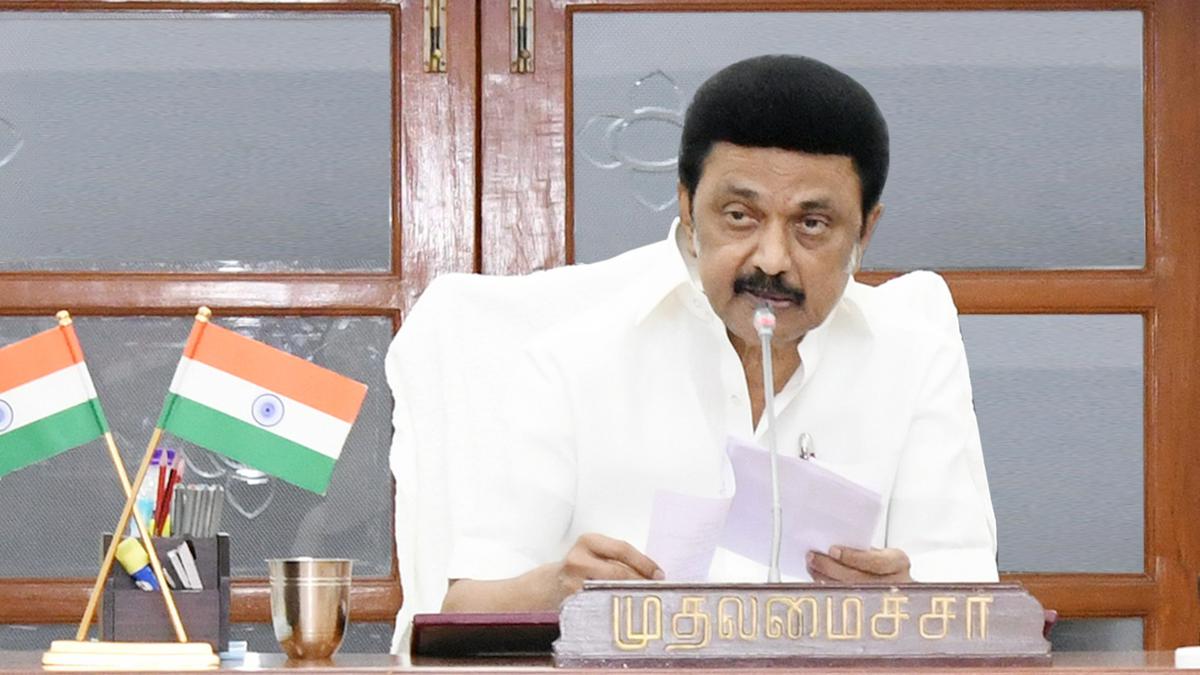
CM to undertake inspection of roads across T.N.
The Hindu
Amidst complaints over quality of roads in various parts of the State, Chief Minister M.K. Stalin is set to undertake field inspections of all districts starting from Chennai this week.
Amidst complaints over quality of roads in various parts of the State, Chief Minister M.K. Stalin is set to undertake field inspections of all districts starting from Chennai this week.
Citing various complaints over the bad roads in various parts of the State, Mr. Stalin on Tuesday instructed the officials to ensure that roads were repaired and kept in good condition.
Chairing a meeting at the Secretariat in Chennai when he reviewed the precautionary measures being taken ahead of the northeast monsoon in the State, Mr. Stalin referred to complaints that roads were in bad shape in Chennai, in its peripheries and in other districts.
“There are reports that those using vehicles are facing hardship and there are recurring reports about minor accidents. This is not acceptable,” Mr. Stalin said.
People were being affected by various ongoing works such as storm-water drain construction, laying of drinking water pipeline, Metro Rail project, and underground connection of power lines among others, he said. “In general, people are facing hardship due to old roads without proper maintenance. This has to change,” the Chief Minister told the officials.
Mr. Stalin advised Ministers and Secretaries to pay special focus on this issue. He reviewed the precautionary measures being taken ahead of the northeast monsoon.
Ministers K.N. Nehru, I. Periasamy, E.V. Velu, M.R.K. Panneerselvam, K.K.S.S.R. Ramachandran, Thangam Thennarasu, Anitha R. Radhakrishnan, Ma. Subramanian, Chief Secretary Shiv Das Meena, Director-General of Police Shankar Jiwal and senior officials were present.

“Writing, in general, is a very solitary process,” says Yauvanika Chopra, Associate Director at The New India Foundation (NIF), which, earlier this year, announced the 12th edition of its NIF Book Fellowships for research and scholarship about Indian history after Independence. While authors, in general, are built for it, it can still get very lonely, says Chopra, pointing out that the fellowship’s community support is as valuable as the monetary benefits it offers. “There is a solid community of NIF fellows, trustees, language experts, jury members, all of whom are incredibly competent,” she says. “They really help make authors feel supported from manuscript to publication, so you never feel like you’re struggling through isolation.”

Several principals of government and private schools in Delhi on Tuesday said the Directorate of Education (DoE) circular from a day earlier, directing schools to conduct classes in ‘hybrid’ mode, had caused confusion regarding day-to-day operations as they did not know how many students would return to school from Wednesday and how would teachers instruct in two modes — online and in person — at once. The DoE circular on Monday had also stated that the option to “exercise online mode of education, wherever available, shall vest with the students and their guardians”. Several schoolteachers also expressed confusion regarding the DoE order. A government schoolteacher said he was unsure of how to cope with the resumption of physical classes, given that the order directing government offices to ensure that 50% of the employees work from home is still in place. On Monday, the Commission for Air Quality Management in the National Capital Region and Adjoining Areas (CAQM) had, on the orders of the Supreme Court, directed schools in Delhi-NCR to shift classes to the hybrid mode, following which the DoE had issued the circular. The court had urged the Centre’s pollution watchdog to consider restarting physical classes due to many students missing out on the mid-day meals and lacking the necessary means to attend classes online. The CAQM had, on November 20, asked schools in Delhi-NCR to shift to the online mode of teaching.









